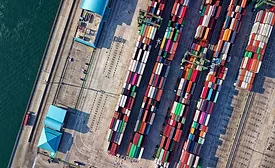Home » supply chain
Articles Tagged with ''supply chain''
CISA announces extension of the Information and Communications Technology (ICT) Supply Chain Risk Management Task Force
Extension will allow the Task Force to continue its work as outlined in its recently released Year 2 Report and position itself to support the supply chain risk management imperative in 2021
February 9, 2021
Sign-up to receive top management & result-driven techniques in the industry.
Join over 20,000+ industry leaders who receive our premium content.
SIGN UP TODAY!Copyright ©2026. All Rights Reserved BNP Media.
Design, CMS, Hosting & Web Development :: ePublishing









